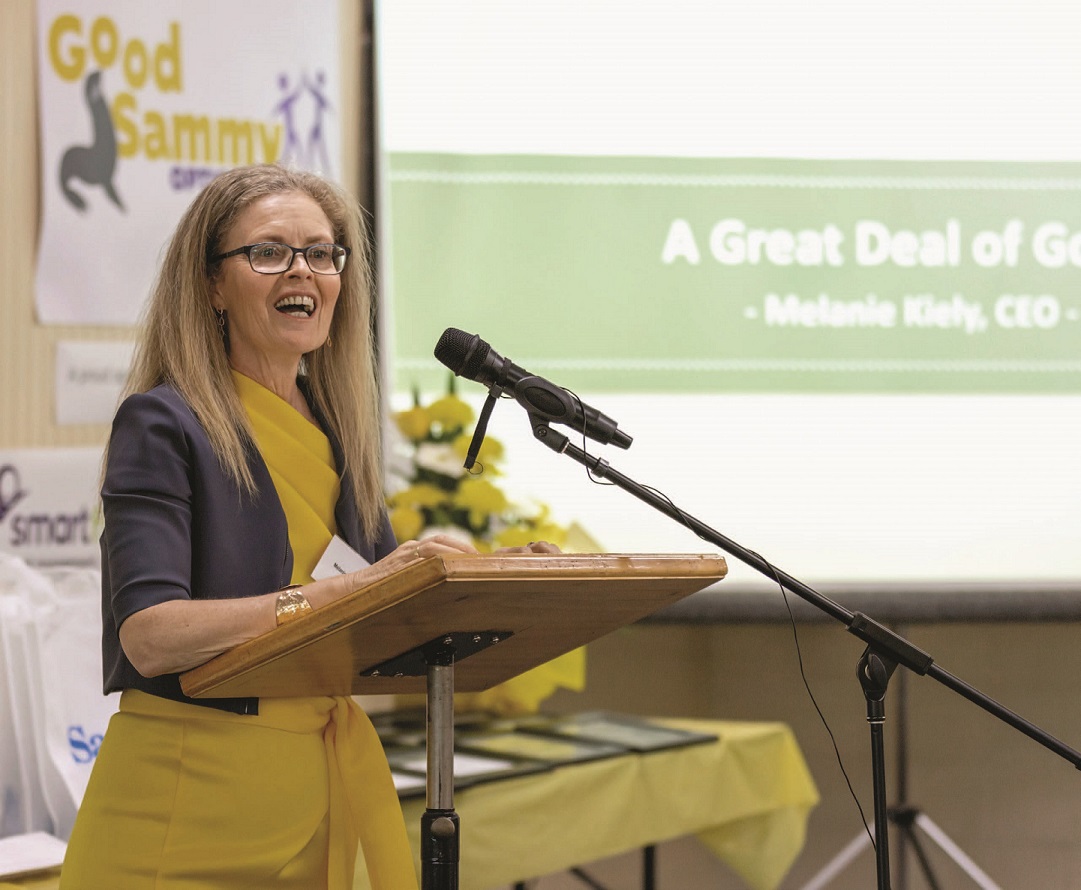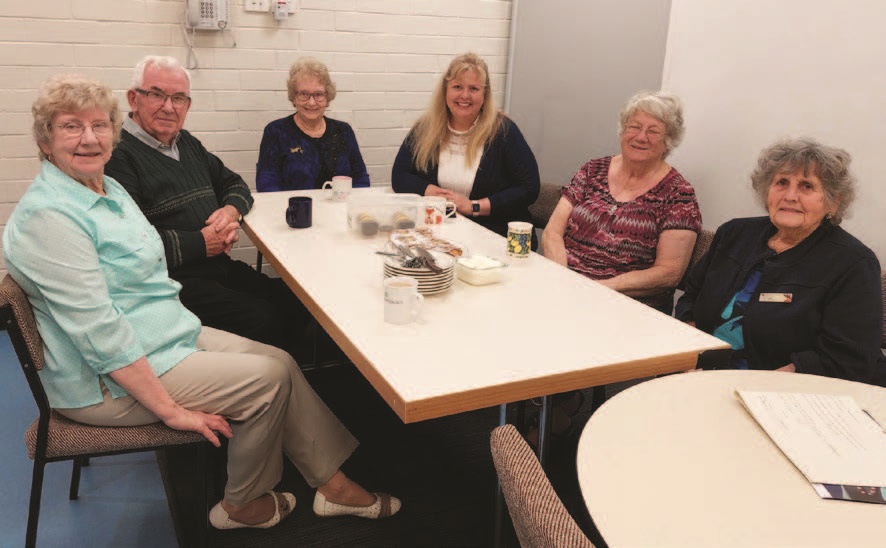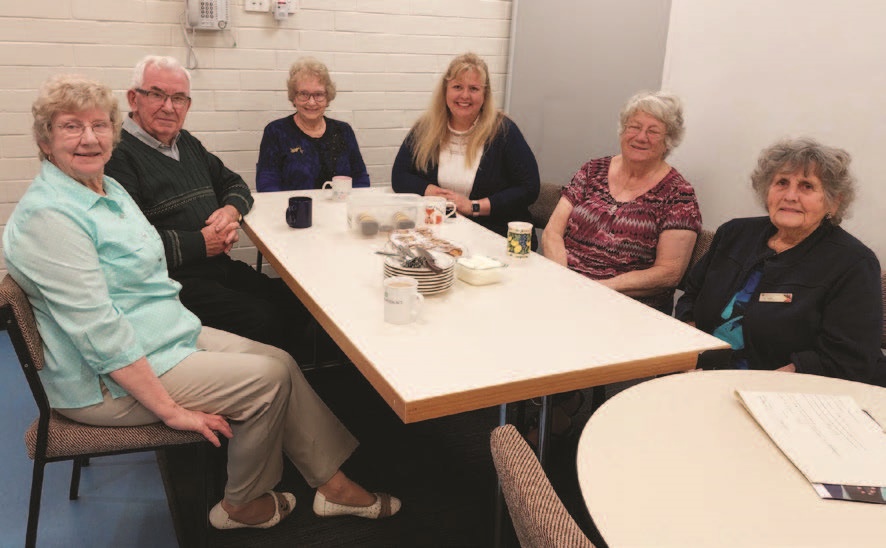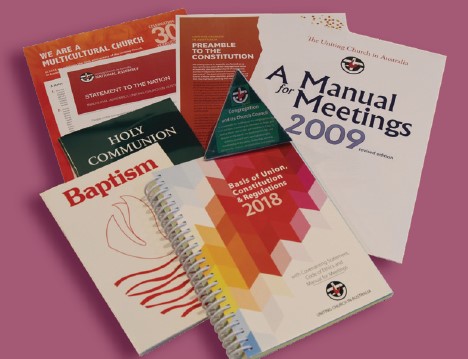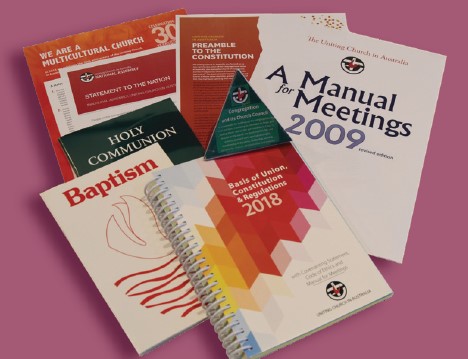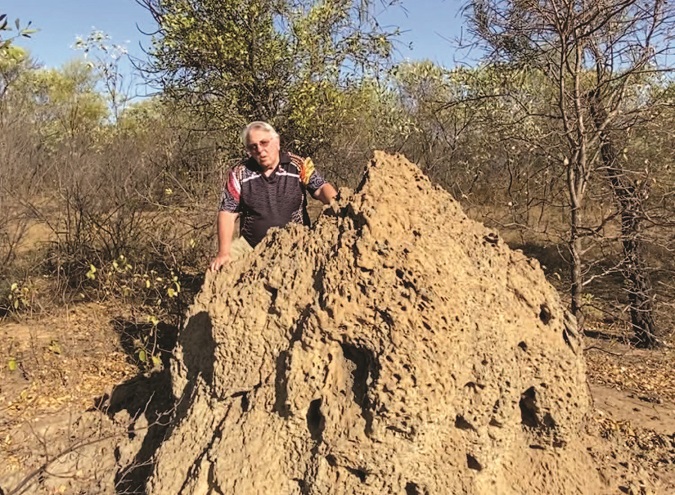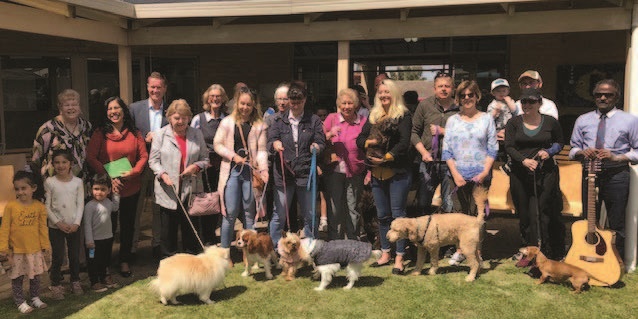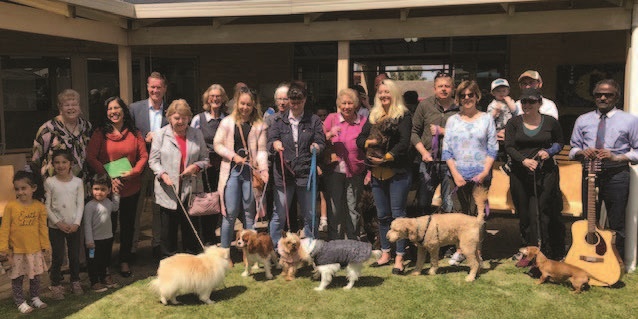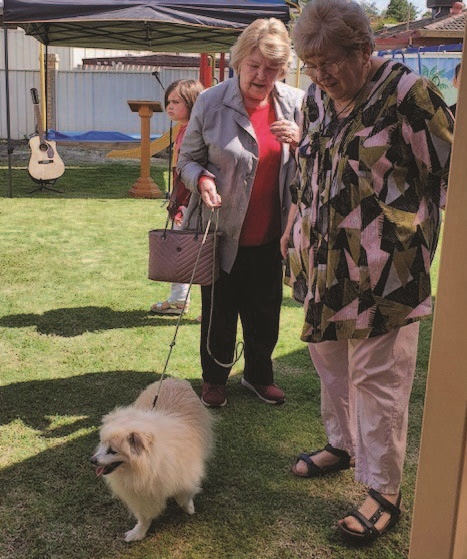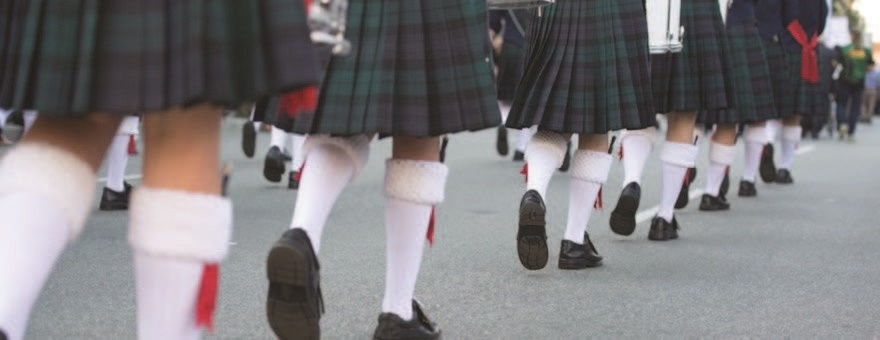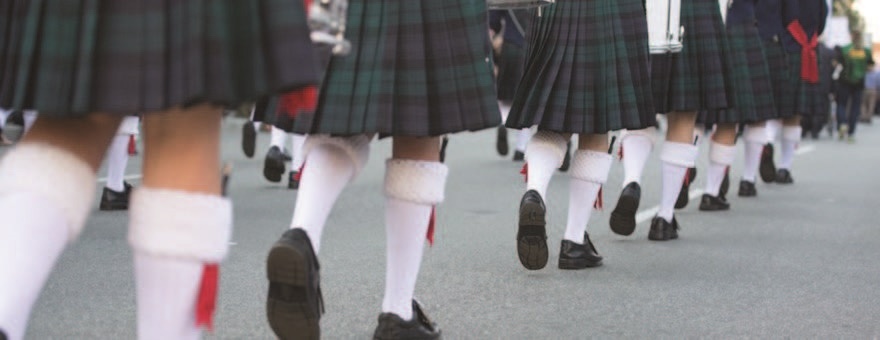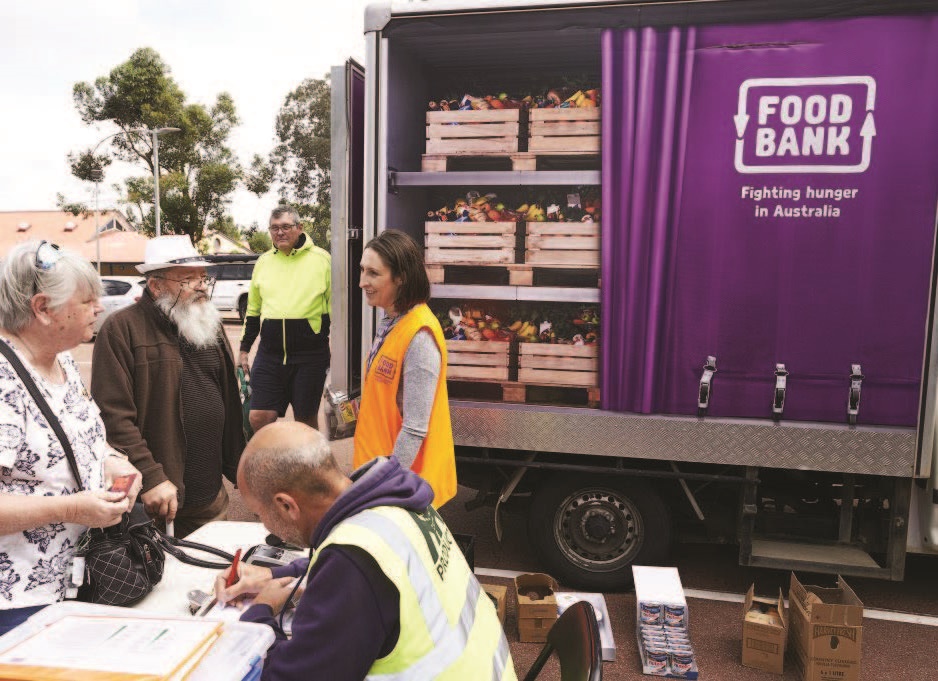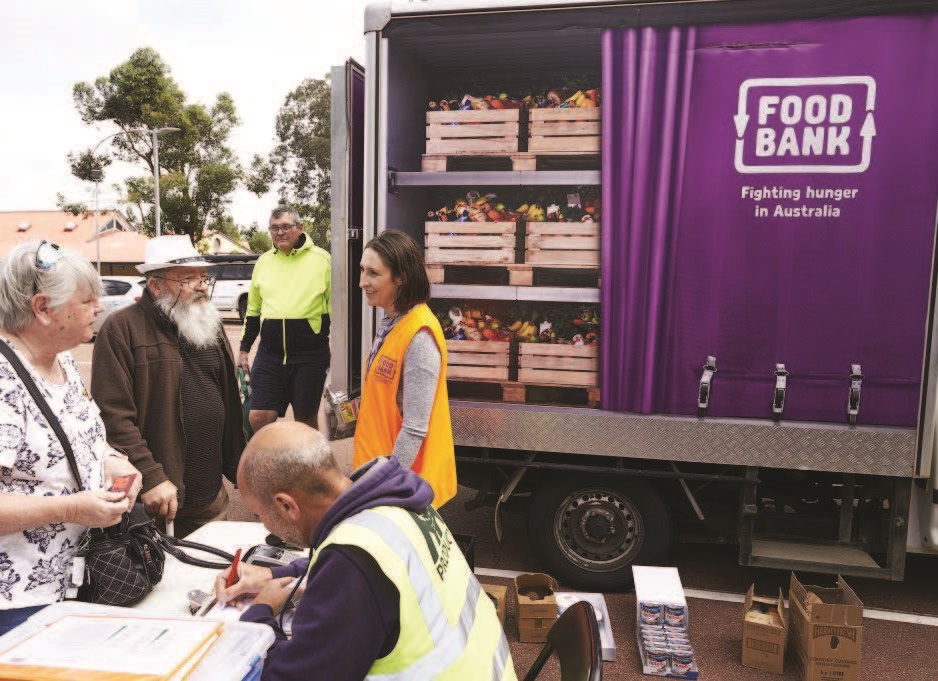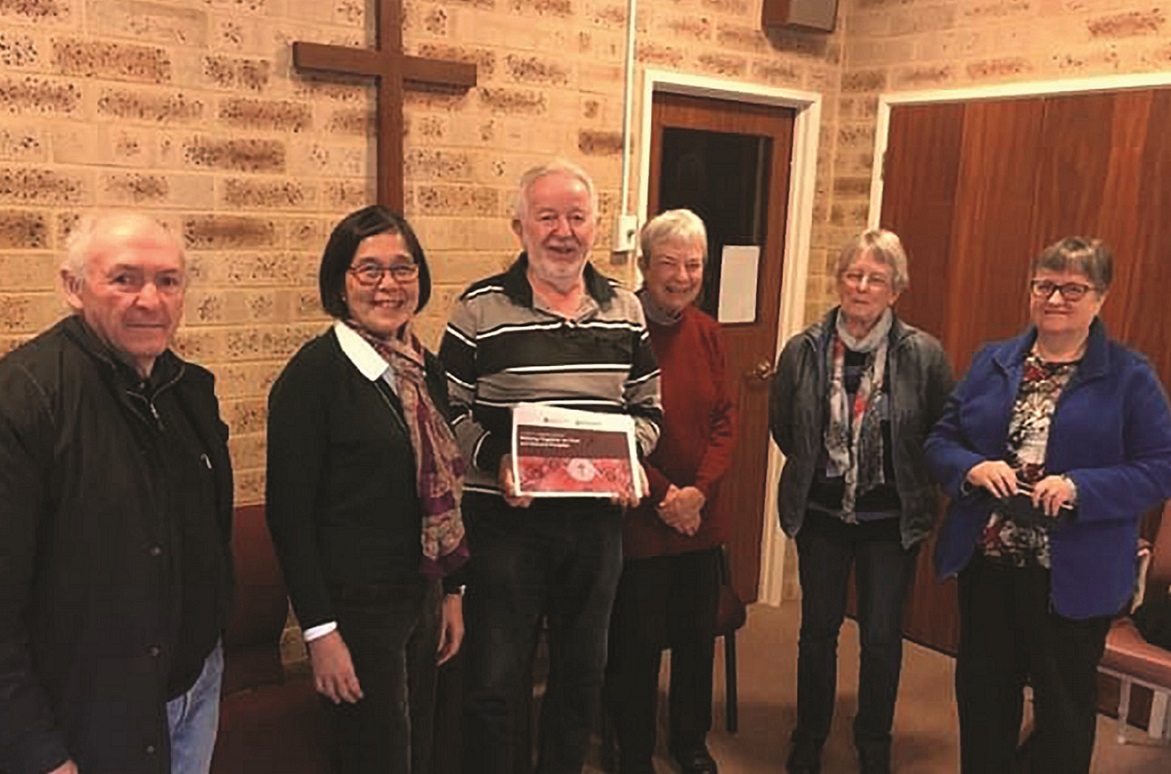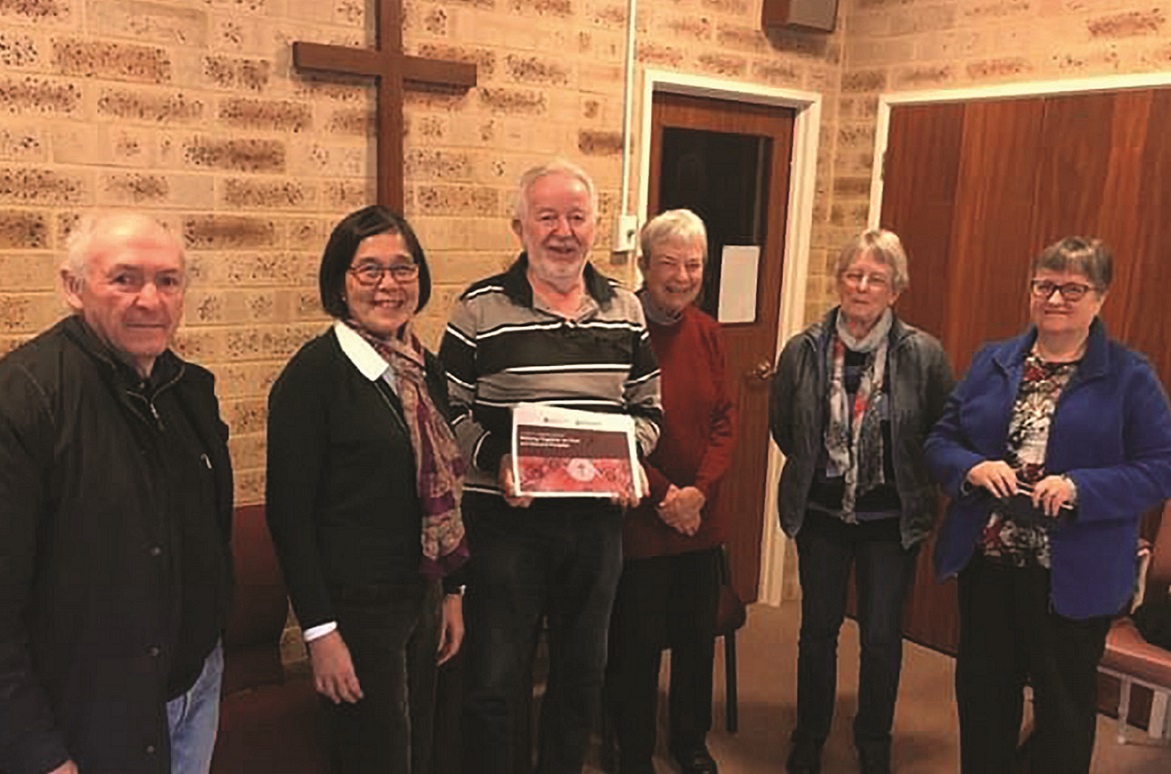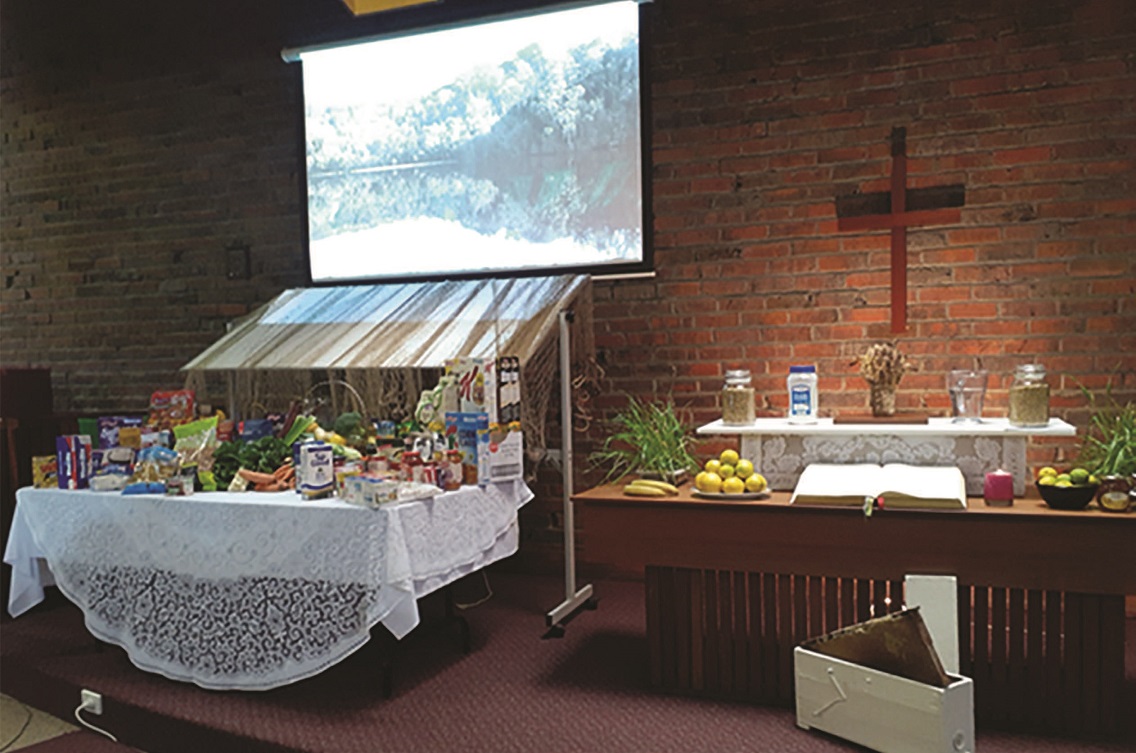We celebrate International Day of People with Disability on 3 December, but how inclusive are we really in the church – spiritually, physically and online?
Accessibility in churches reaches beyond the physical barriers, and can also be about social inclusion and good theology around disability.
Robbie Muir, from Maylands Mount Lawley Uniting Church, lives with hearing and sight disabilities and feels it is important to teach the church how to be more inclusive. He also works with Good Sammy Enterprises, volunteers with Revive packing, and sits on the Uniting Church WA Disability Royal Commission Synod Task Group. He has presented his thoughts to Presbytery of WA meetings in the past, to encourage churches to become more accessible.
“A lot of my experience has been trying to teach the church what to do,” he said. “It’s alright for people to say ‘oh yes we care for the disabled’, but if they haven’t got things in place, it’s no good.”
Robbie encourages congregations to use overhead screens that are clear to see and free of backgrounds or busy images; make available large print copies of texts; provide hearing loops that are down the front of the church; have good lighting; have minimal steps or provide ramps; and have bathrooms that are easily accessible.
He thanked the church for its progression in this area, but also said he would like the church to be more aware of the issues that affect people with a disability and their inclusion in church.
“Quite often we’ve had to come up with ways to get around things,” he said. “I have an IrisVision that I can put on and see the overheads, but for a few weeks we had somebody who couldn’t do the overheads and we had sheets – and no one enlarged the hymns for me.
“It makes you feel a bit useless and that the church isn’t for you. It makes you feel isolated and excluded.”
He also encourages people to talk to members of their congregation who have a disability, and ask them what would help their experience at church.
“I think a lot of people don’t talk to the disabled because they think they’re stupid or don’t understand. Ask the disabled person [what they need], don’t just think ‘oh well they’ll manage’. Ask them. We’re not dumb, we’re not stupid.”
Dr Scott Hollier, CEO of The Centre for Accessibility Australia, is passionate about supporting organisations to create accessible digital spaces. He is also legally blind, and a member of Kalamunda Uniting Church.
Scott said that creating accessible spaces, and therefore inclusion, for people living with disability, is easier than we think. With some intentional thinking and planning, we can all get better at creating an accessible environment.
“Look at the quick wins,” Scott said. “You don’t have to solve every disability issue instantly; it will be a journey. But once the key pieces are in place it becomes a different way of doing things, rather than extra work.
“For example, once you’ve got that slide template high contrast, well, every slide will be high contrast.
“Quite often it is just about an awareness. Once people are aware of it and people are happy to do it, then it just happens after that point going forward.”
Melanie Kiely, CEO of Good Sammy Enterprises, a Uniting Church WA agency providing employment solutions for people living with disability, agrees that our digital and physical spaces need accessibility, and that we can go further on inclusivity.
“It’s so much more than just space and physical accessibility. If we just focus on that then we’ve lost an opportunity here,” Melanie said.
“It’s about inclusion, it’s about welcoming and embracing everybody – regardless of their ability and their background – into a church environment.
“It’s what we cover in the sermon, it’s the language we use, it’s the hymnbooks we use. Obviously, it’s the ramps and what have you, but it’s more than that.
“It’s about running churches that embrace everyone.
“We should be having people with disability in every church service as part of everything we do in the church. And they should feel completely included and we should learn from them, as much as they can learn from us.
“We’re about creating a community of faith, love and inclusion – that’s what I would like to see.
“Include everyone in the sermon, let them talk about their experience. Let’s include them in the choir, playing music and in the art. Include all levels of creativity, so that we’re embracing the differences of all our people in our congregations.
Melanie said that living with a disability does not have to be a negative thing. All people are unique and have gifts and skills, which should be welcomed and celebrated.
“We shouldn’t assume people with disability are flawed. We’re all different, we all have abilities of different natures and we shouldn’t assume that people need to be fixed,” she said.
“We should accept people and embrace people with all their unique and special characteristics.
The Royal Commission into Violence, Abuse, Neglect and Exploitation of People with Disability (Royal Commission) was established in April 2019 and is still ongoing. It is likely that the Uniting Church WA will be affected by the Royal Commission. However, the church has a longstanding belief of inclusiveness, and works towards this end.
Dr Scott Hollier said that the Royal Commission is an opportunity for us to learn from the past.
“I think the Royal Commission has revealed that people with disability have not always been treated well in the church, and that needs to be acknowledged,” he said.
“I think the Uniting Church has done well in acknowledging the issues and trying to put processes in place going forward, and I think that’s a good thing.
“That said, my focus, and the focus at the Centre and as a legally blind person, is that we need to learn from the past. The Royal Commission has been important in understanding what has happened.
“Accessibility – whilst certainly that type of exclusion is nothing on the scale of physical abuse and spiritual abuse – does tap back into the importance of inclusion and equity moving forward.
“I would see accessibility as one more mechanism where we can focus going forward on making sure everyone is included in a worship space, and have that opportunity for full participation.”
Melanie Kiely, believes the Royal Commission is a good thing for Australia.
“It’s going to be a good thing for everyone,” she said. “You take the lid off the can of worms nd we can improve and stop bad behaviour and get better. We’ve got to keep improving.
“We’re not about protecting ourselves and we’re not about covering things up. We’re about learning from our past mistakes and moving on and not making them again.
“What we’re aiming for is a society that truly embraces diversity and inclusion, and that includes people with disabilities, and adapt the model of what we think perfect is, to be one that is beautiful diverse and imperfect.”
Melanie said the Royal Commission will be felt throughout the church – in our agencies, schools and congregations.
“I would see accessibility as one more mechanism where we can focus going forward on making sure everyone is included in a worship space, and have that opportunity for full participation.”
“I think it’s right across the board and I think it may or may not include an element of redress,” she said.
“It’s very wide reaching, and at this stage it’s going to go for another two years. There’s going to be a lot more hearings on a lot more topics.”
Dr Elaine Ledgerwood, Uniting Church WA Presbytery Minister – Education and Training, is a theologian with past experience in Occupational Therapy. Having worked with people with disabilities and listening to their stories, mixed with studying and continuously learning about God’s all-inclusive love, Elaine believes we are all vulnerable to disability throughout our lives.
“You are only temporarily able,” Elaine said. “For many people, this is likely to change.
“People with disabilities are like the rest of us – we all have our different hopes and fears, different personalities and different understandings of faith. One
day you might have a disability too; when that’s the case, I am sure you would like others in your congregation to ensure you are included in their activities.”
Theologically, Elaine said that sometimes people can make comments about a disability which may be in good faith, but which can actually be quite harmful.
“Spiritual abuse is a problem, such as when people get told they need to pray harder for healing,” Elaine said. “Instead, ask questions to help people find their own connection between their faith and disability.
“Using disability as a metaphor for the bad things in life – for example, talking about the Pharisees being ‘blind’ – can often be experienced as being judgemental about disability. Yes, it is something the gospel writers did, but we now understand the harm this can cause.
“Disabilities can be part of someone’s identity. So, saying things like ‘in heaven you’ll be walking’, or similar, is not always helpful. How would you feel if a key part of your identity was dismissed as not being important? Remember the resurrected Christ still carried the wounds of the crucifixion.”
However, living with disability does not always define a person, and Elaine said we should not make assumptions about anyone and their abilities.
“Disabilities do not define people. Just because you’ve known someone else with the same disability doesn’t mean you know this person. Get to know each person as an individual.”
Dr Scott Hollier believes that we have come a long way in Australia towards creating more accessibility, but that there is still a way to go.
“There’s been a generational shift around views and attitudes of people with disability and inclusion in society. That’s not just a church thing, but more broadly,” he said.
“I think as we continue to move forward with more awareness and education of the rights and needs of people with disability, that across society, and that includes religious organisations, that will get better.
“One of the great things about church is that it is a really supportive and inclusive environment. The lack of accessibility has never suggested to me that people don’t care or that people aren’t wanting to provide support – often it’s a lack of awareness.
“It’s been my experience that once people understand what the needs are, they’ve been very willing to make those accommodations. There’s a lot of great people who are willing to do great things to support equity, and it’s just a matter of letting people know about it.”
Tips for being an accessible church
Dr Scott Hollier shares these great tips for how your church or organisation can become more accessible in digital and physical spaces.
- Make sure overhead slides have large font with good colour contrast, eg a dark background with white text. If people are still unable to see the slides, having devices (like an iPad) available with a link to see them can also be helpful.
- Make sure videos have captions.
- Distribute electronic versions of meeting documents before meetings.
- Make sure PDF documents and newsletters are digitally accessible.
- It is an Australian requirement that websites are compliant with the WCAG 2.1 AA standard, which has a range of key components. When building a new website, make sure to read up about these requirements or ask your web designer to work them in.
- Make sure physical access to, from and around the building is clear and open, giving thought to things like space, handrails, and clutter.
Resources for more information about how to get your congregation on board with accessibility can be found on the website for the Centre for Accessibility Australia at accessibility.org.au.
The Centre for Accessibility Australia can also work with congregations and organisations as they commit to this journey. Contact them for more information on 0466 099 101 or email admin@accessibility.org.au.
Heather Dowling
